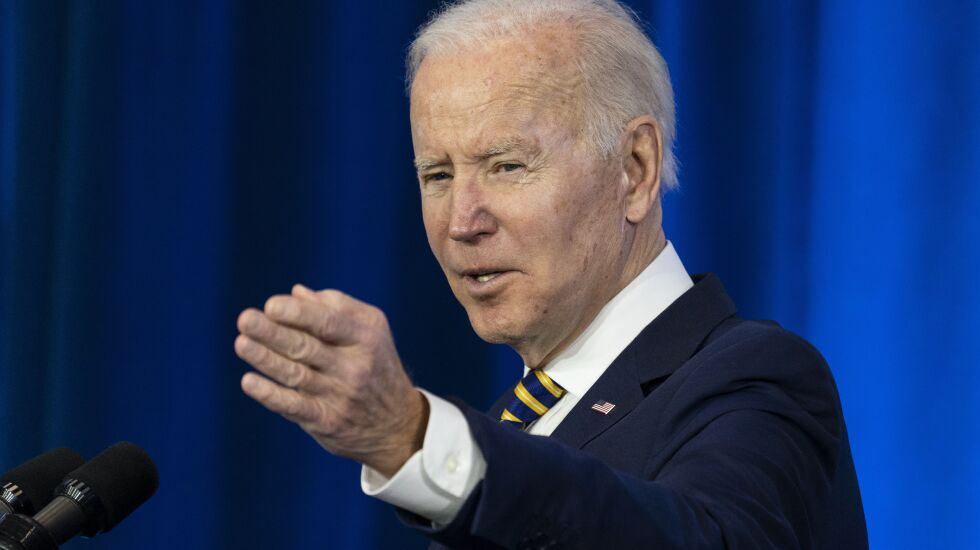
In the first 19 months of his presidency, President Joe Biden’s accomplishments echo themes and priorities from the major initiatives of Presidents Franklin D. Roosevelt, Dwight D. Eisenhower, Lyndon B. Johnson and Ronald Reagan.
Biden has governed from the center, remained sensitive to important issues affecting voters on the left and right and achieved a moderate level of congressional bipartisanship.
He has restored transparency and integrity to the White House and Department of Justice, while expanding diversity throughout the executive branch. He halted the federal death penalty and has appointed the most federal judges at this point in his tenure since Reagan.
He signed the Inflation Reduction Act, the American Rescue Plan, the infrastructure law, the gun law, the Chips law, the PACT burn pits act and the anti-Asian hate crimes law. He updated and reauthorized the Violence Against Women Act.
He has promoted worldwide democracy via military and humanitarian support for Ukraine, reinstated the U.S. as the democratic world leader and expanded and strengthened NATO. He completed a withdrawal of the U.S. military from Afghanistan and oversaw the killing of al-Qaida leader Ayman al-Zawahiri, who was Osama bin Laden’s right-hand man.
He addressed global warming, approved major offshore wind projects and provided drought and wildfire mitigation funds. He achieved historically low unemployment rates, created a record number of jobs, supported unions and provided higher pay for the working class. He significantly reduced the federal budget deficit, addressed gas price gouging, required publicly traded corporations to pay a modest 1% excise tax on stock buy-backs and assured corporations with over $1 billion in earnings will pay a minimum 15% income tax.
He provided effective COVID-19 pandemic management while making free vaccines and boosters widely available. He adopted and then extended healthcare.gov subsidies. He provided support for transgender troops, increased the size and number of Pell grants and enhanced funding for historically Black colleges and universities.
He provided expanded, refundable child tax credits for families with children ages 17 and under to the end of 2021. He significantly lowered child poverty levels. He provided Medicare recipients with free vaccines and a $35 monthly out-of-pocket cap on insulin starting 2023, capped out-of-pocket Medicare drug costs at $2,000 annually starting 2025 and allowed Medicare to begin negotiating drug pricing starting 2026.
He improved the federal student loan discharge process for permanently disabled persons, for defrauded students and students who now work in public service. Individuals earning up to $125,000 annually (and families earning up to $250,000 annually) are now eligible for up to $20,000 of student loan debt relief if Pell grants were used to help pay for college. Any student loan borrower who did not have access to Pell grants while in college will receive up to $10,000 in student loan debt relief if they satisfy the $125,000/$250,000 annual income limits. Borrowers with remaining undergraduate student loan debt after the $20,000 or $10,000 in loan forgiveness will be eligible for a new Income Based Repayment Plan, which caps the monthly payments at 5% of disposable income. After making 10 years of loan payments, any remaining student loan balance will be discharged for these specific borrowers.
Biden’s accomplishments echo themes and priorities from the major initiatives by Roosevelt, Eisenhower, Johnson and Reagan. Two Republicans and two Democrats.
Thomas C. Oakes, who is retired from a career in financial analysis, teaching, management and consulting, holds an MBA in finance from the University of Chicago’s College of Business.







